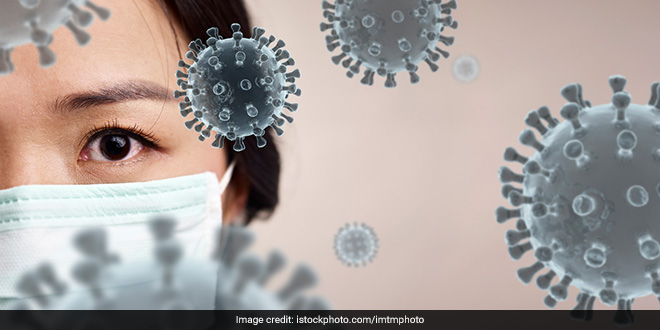Highlights
- Researchers from China studied airborne transmission of COVID-19 in indoors
- They traced infections following a large outdoor worship event in Zhejiang
- Researchers found COVID-19 transmission in a bus with closed windows
Washington: Findings of a recent study from the University of Georgia support growing evidence for airborne transmission of COVID-19 in enclosed spaces. Researchers were able to link a community outbreak of COVID-19 in China to a source patient who likely spread the virus to fellow bus riders through the bus’s air conditioning system. “The possibility of airborne transmission has long been suspected, but with limited empirical evidence. Our study provided epidemiologic evidence of transmission over long distances, which was likely airborne,” said Ye Shen, an associate professor of epidemiology and biostatistics at UGA’s College of Public Health and lead author on the study.
Also Read: One In 15 People Aged 10 And Above Estimated To Be Exposed To SARS-Cov2 By August: ICMR Sero Survey
The study, which was published recently in JAMA Internal Medicine, calls into question the prevailing thought on how COVID-19 can spread.
It was largely believed that close contact through droplets is a major route of transmission for COVID-19. However, the widely adopted social distancing and hand washing did not effectively prevent the transmission globally. Instead, the number of new COVID-19 cases increased steadily, said Ye Shen.
Ye Shen and his co-authors worked with epidemiologists from two regional Centers for Disease Control and Prevention in China to trace infections following a large outdoor worship event in Zhejiang province.
Some of the attendees, it turns out, took two buses to the event creating a unique natural experiment for the researchers.
Both buses had closed windows and had air conditioning running, said Changwei Li, an associate professor of epidemiology at Tulane University and study co-author – but one bus carried a patient infected with the virus, and the other did not.
Of the passengers who later got sick, the majority of them rode on the same bus as the source patient. Even though the two groups later mixed in with the larger crowd at the worship event, the number of new cases attributed to the event were much lower, suggesting that the bus was the major point of transmission.
Further, some of the bus passengers who later showed symptoms of COVID-19, the authors found, were not sitting close to the infected passenger.
These findings highlight scenarios where COVID-19 could be spread through fine aerosol particles being circulated in an enclosed space, and as the weather turns colder, Shen and Li hope this work will persuade more people to wear face masks in public areas, particularly in indoor spaces.
Understanding the transmission routes of COVID-19 is critical to contain the pandemic, so that effective prevention strategies can be developed targeting all potential transmission routes, said Ye Shen.
“Our findings provide solid support for wearing face covering in enclosed environments with poor ventilation,” Ye Shen added.
Also Read: Coronavirus Explainer: 20 COVID-19 Related Terms And What These Mean
(Except for the headline, this story has not been edited by NDTV staff and is published from a syndicated feed.)
NDTV – Dettol Banega Swasth India campaign is an extension of the five-year-old Banega Swachh India initiative helmed by Campaign Ambassador Amitabh Bachchan. It aims to spread awareness about critical health issues facing the country. In wake of the current COVID-19 pandemic, the need for WASH (Water, Sanitation and Hygiene) is reaffirmed as handwashing is one of the ways to prevent Coronavirus infection and other diseases. The campaign highlights the importance of nutrition and healthcare for women and children to prevent maternal and child mortality, fight malnutrition, stunting, wasting, anaemia and disease prevention through vaccines. Importance of programmes like Public Distribution System (PDS), Mid-day Meal Scheme, POSHAN Abhiyan and the role of Aganwadis and ASHA workers are also covered. Only a Swachh or clean India where toilets are used and open defecation free (ODF) status achieved as part of the Swachh Bharat Abhiyan launched by Prime Minister Narendra Modi in 2014, can eradicate diseases like diahorrea and become a Swasth or healthy India. The campaign will continue to cover issues like air pollution, waste management, plastic ban, manual scavenging and sanitation workers and menstrual hygiene.
[corona_data_new]




























